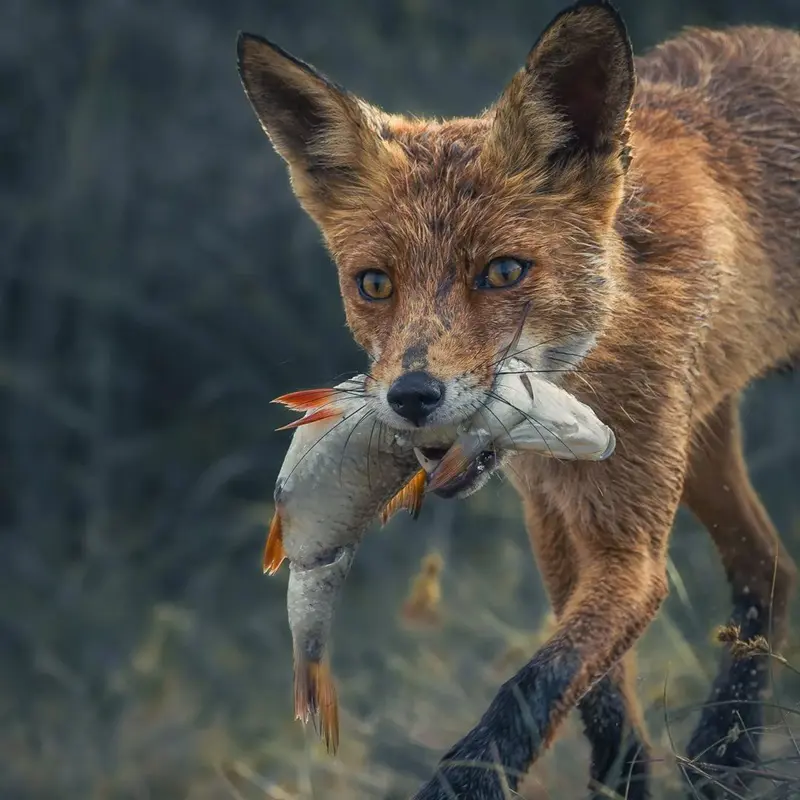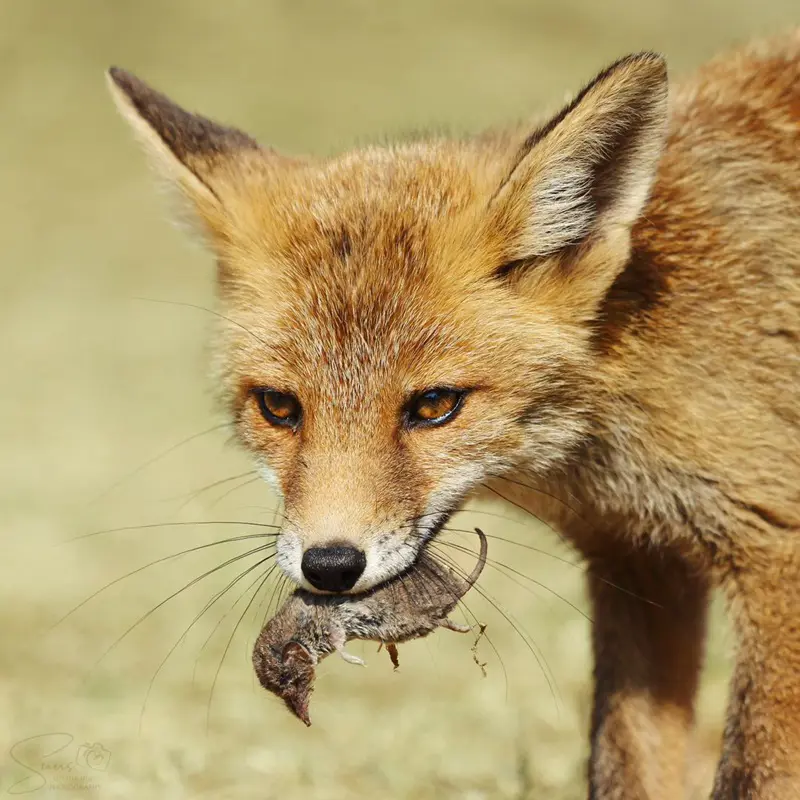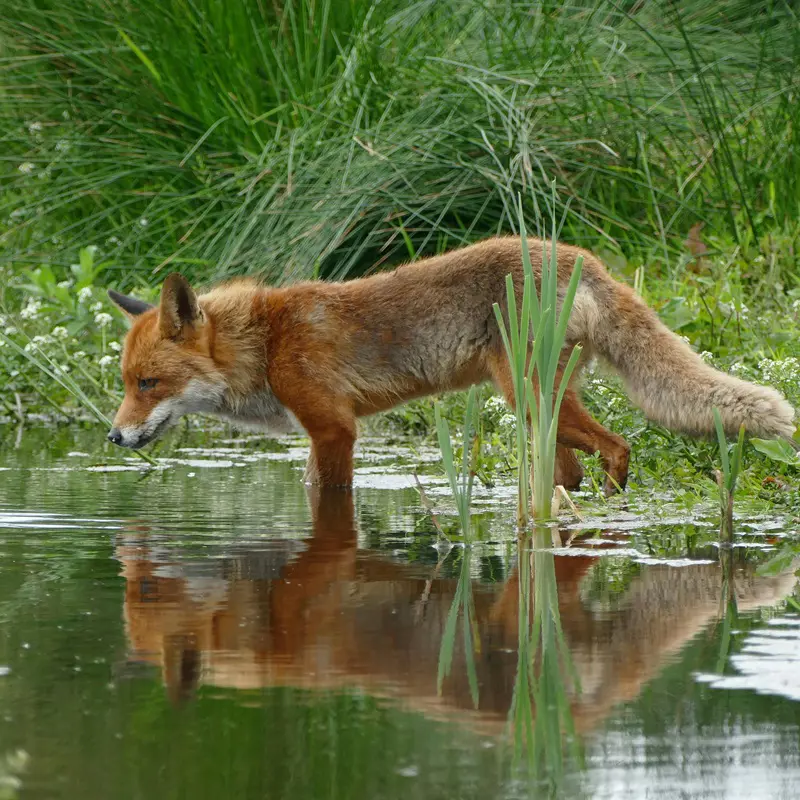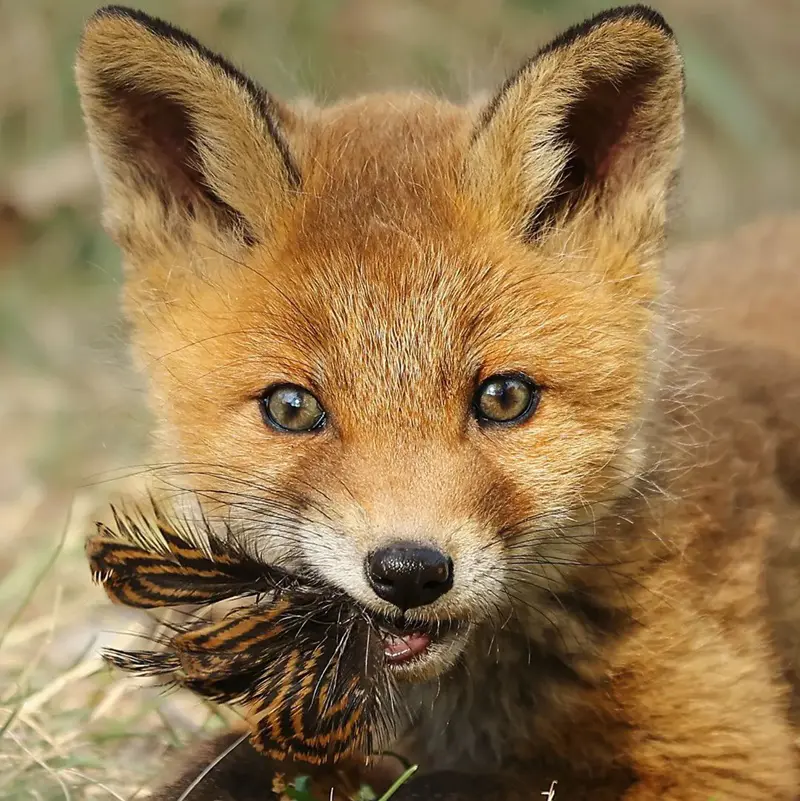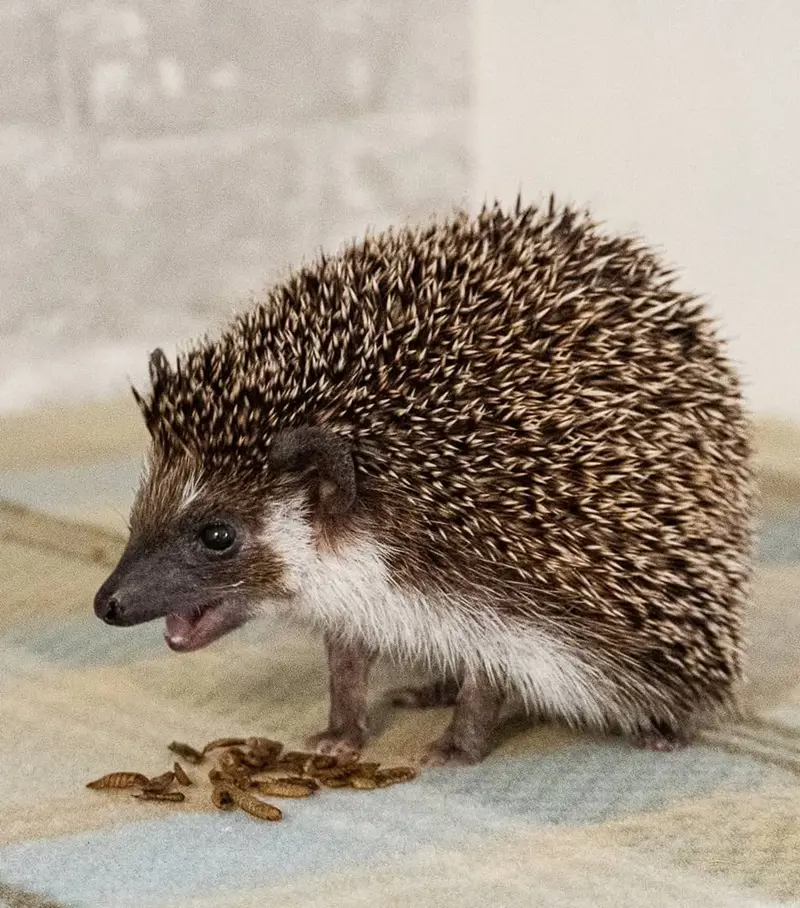What Does Fox Eat Inside Homes
1. Pet Food
Foxes are ingenious, opportunistic animals, and they have figured out that most houses provide free and effortless food. Among their favorite newfound foods are pet foods. If you leave your cat or dog's food out of doors, especially at night, the foxes will avail this precious opportunity to the fullest.
Normally, dog and cat foods are abundant in protein and fat, and unfortunately, a very healthy and convenient diet for a starving fox. They will scavenge more than hunt in the case of an urban setting; the food placed outside is what normally will bring them back to visit, and they'll make your yard their diner.
2. Trash
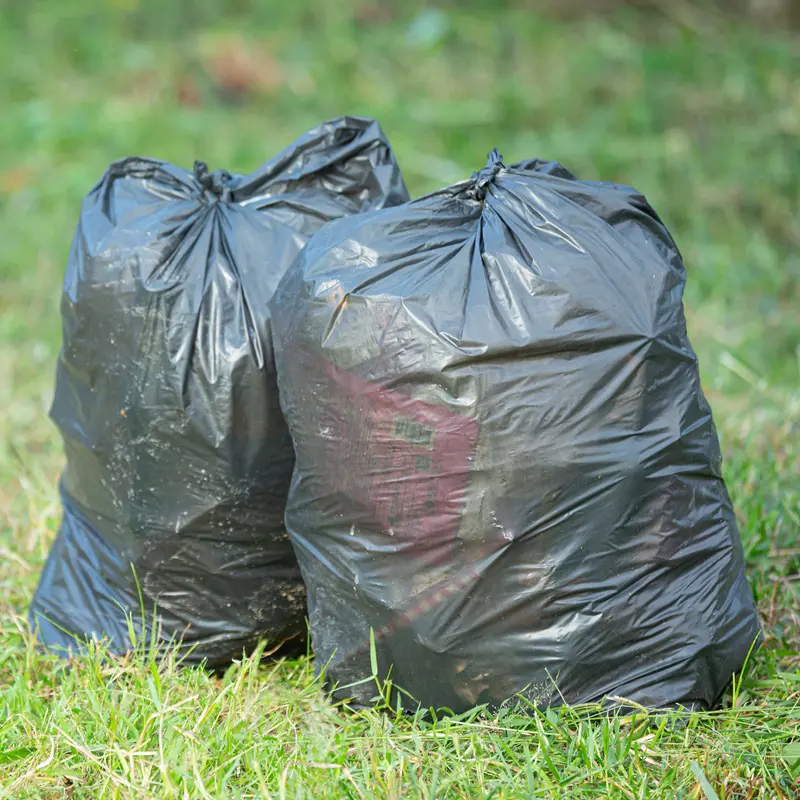
Foxes are always on the lookout for food; to them, your trash can is a fine dining restaurant. Leftover scraps of food, bones, or even your trashy take-out containers may attract foxes into your yard. They have good senses of smell and can sniff their food from miles away, so unsecured trash bins are easy prey.
Once a fox learns that your trash is an easy way to score a meal, it will become a repeat customer, potentially causing mess and destruction. Keeping your garbage in tight-lid containers or storing your cans in a locked enclosure can deter these nighttime critters from making it a habit to visit your trash can.
3. Bird Feeders
While bird feeders are intended to attract feathered friends, they may also be luring in crafty foxes. Seeds and suet, and even birds, can become meals for these clever creatures. Foxes are opportunistic hunters; therefore, when they see a bird feeder, they tend to hang around, waiting for birds to drop some food or even try to snatch it.
In addition, spillover seeds that fall to the ground can also be attractive to small mammals, like squirrels and mice, which are other fox prey. If you see a fox visiting your bird feeder, hang the feeder farther off the ground or attach a catch tray to catch more of the spillover.
4. Compost Piles
While being an ecological way to recycle kitchen scraps and yard wastes, a compost pile may also serve as a larder for foxes. These cunning creatures will dig your compost heap for decomposing fruits, vegetables, and other edible wastes.
There is even a possibility that foxes will be attracted to the smell of rotting food in a rigorously plant-based compost heap. They'll dig in the pile, occasionally heaving the contents onto your lawn when they're looking for a treat.
5. Poultry
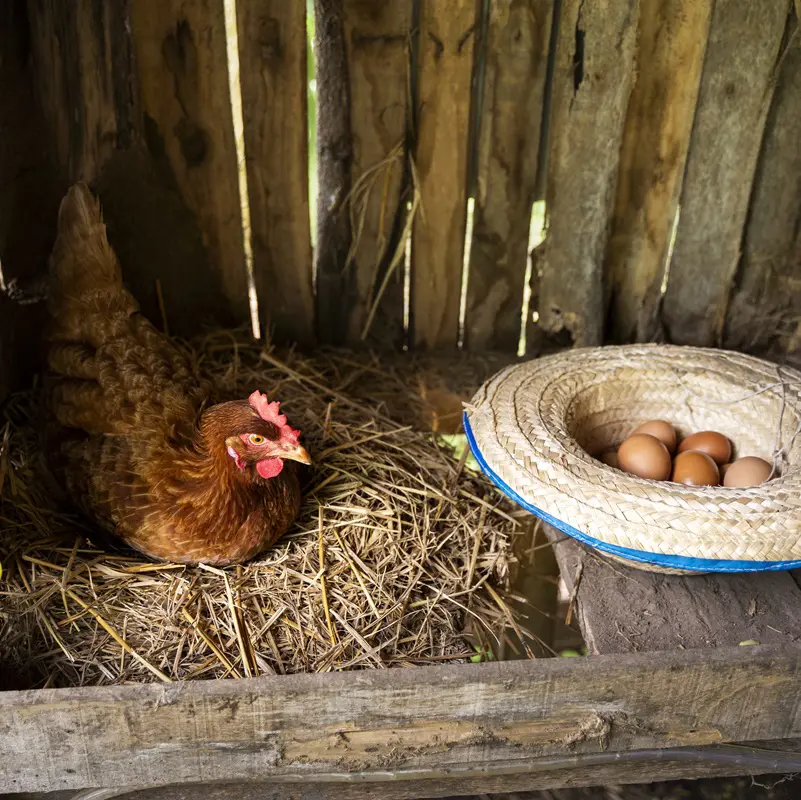
The foxes are great hunters, and small backyard poultry serves just the right prey. Keeping poultry at your homestead therefore demands that you essentially seal your coop tight because a very hungry fox will try every trick in the book to get inside.
Foxes can dig under weakly secured fences and slip through very narrow cracks on them; they are even able to climb over barriers to their rightful prey. And if they get in, they will ruin the whole flock in no time. Most foxes hunt during the night, so you should ensure your coop is closed well after dark.
6. Rodents
Foxes are the pest control agents of nature, and in this particular case, they do a great job keeping the rodent populations under control. Mice, rats, and voles are everywhere, from towns to rural areas, and they comprise a huge part of the diet of any fox.
This type of small mammal has no chance against such a cunning fox, mainly because they are small and rather slow compared to the foxes. Through hunting rodents, foxes help create a balance in the ecosystem and do the same for your yard. If you have rodent trouble, then the presence of a fox may be a blessing in disguise.
7. Fruits and Vegetables
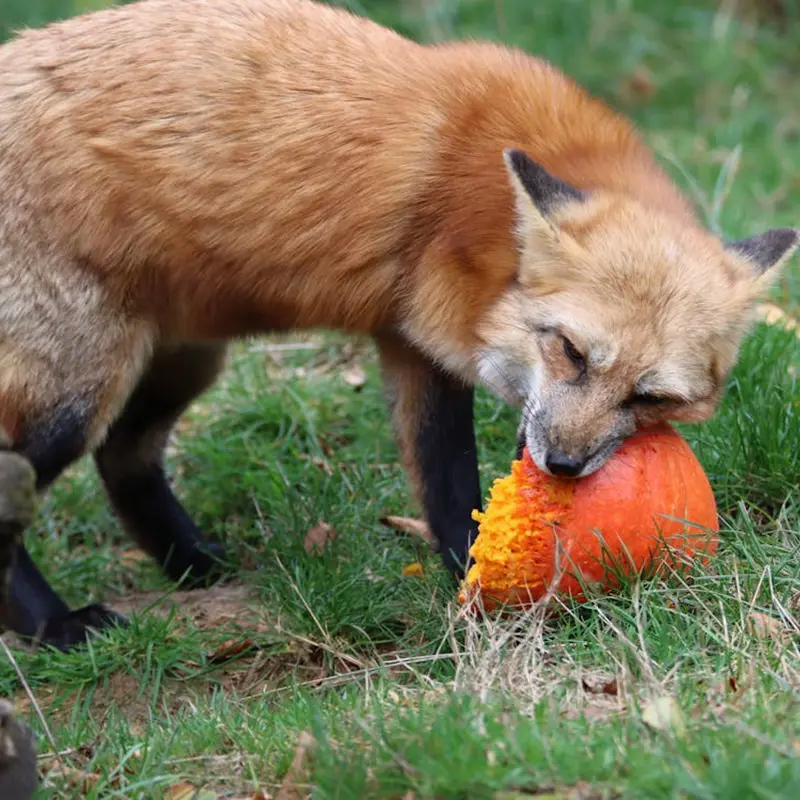
While they are essentially carnivorous, foxes have the instincts and physiology of omnivores, which help them survive on available food sources. Foxes will happily munch on fruits and vegetables from your garden when meat is scarce or simply as part of a varied diet.
Foxes are known to raid orchards and vineyards and they even go into backyard gardens, relishing whatever they can source out. In addition to fruits, foxes also eat certain vegetables when their usual food is scarce. If you notice that somebody, or rather something, has had chunks bitten out of your garden produce, a fox might be the culprit.
8. Domestic Rabbits
Outdoor hutch-raised domestic rabbits are, unfortunately, very easy targets for foxes. Foxes are magnificent predators, and they won't flinch at the thought of your pet rabbit becoming their next dinner if the hutch isn't secure.
They will have no trouble digging under a hutch with weak security, squeezing through tiny openings, or chewing through thin materials to get to the rabbits inside. Do this by putting your hutch up high with strong materials and locks that can't be fiddled with by any curious fox.
9. Wildlife in Your Yard
Foxes are opportunistic hunters, and they won't hesitate to target small wildlife that ventures into your yard. These are very often more easily and readily caught than larger prey would be for any fox, especially juvenile or inexperienced ones.
If you have a pond in your garden, foxes may hunt frogs or other amphibians there. They catch insects, too, like beetles or grasshoppers, and even earthworms that come out following a rainstorm. While these smaller prey may not provide a large meal, they can help sustain a fox, particularly during lean times.
10. Fish Ponds
These decorative fish, respectably making their habitat in many gardens, can become very inviting to the hungry fox. Keeping fish like koi or goldfish in an outdoor pond may put them in jeopardy from such silent killers.
Being agile and quick, foxes will have no trouble pulling a fish from shallow waters. While fish are not the main part of a fox's diet, they will not refuse an easy meal if other food sources are low. Netting installed over the top of the pond and deeper areas created within it can help protect your fish from predators.
11. Outdoor Leftovers of Human Food
Foxes never let an opportunity slip away, and food left outdoors is an invitation they can hardly decline. This may be anything from a sandwich that has been left behind when one goes for a picnic to the remains of the previous night's BBQ; foxes will not think twice but get in to take away this easy meal.
They are most active during the night and early morning, making any food that happens to remain outdoors overnight an easy target. Foxes will not be fussy; they will eat everything, from burgers to pieces of meat, bread, and even left-behind wrappers of fast food.
12. Eggs
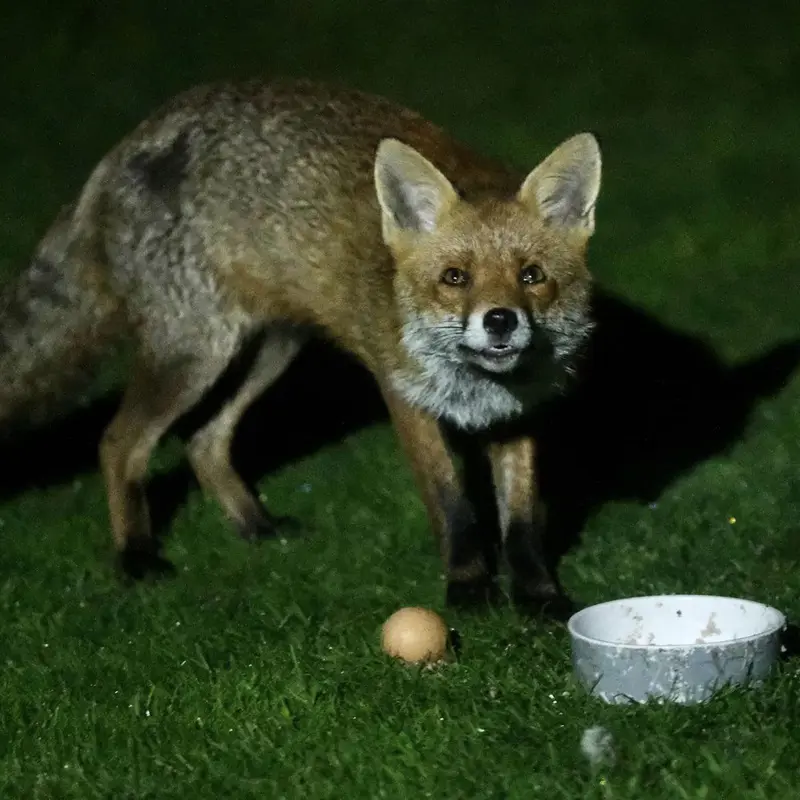
Eggs are rich in protein and other fox nutrition. From a hen-house to wild bird eggs, the fox will jump out of their way to steal eggs whenever they have the opportunity. In foxes living near homes that have poultry, chicken coops make for an irresistible target.
Any enterprising fox can squeeze its way into most jerry-built coops, stealing eggs or, if it gets a chance, chickens. Foxes also raid nests of ground-nesting birds in the wild for an eggy feast.
13. Garden Worms and Grubs
The foxes are industrious hunters who will dig your garden or lawn in pursuit of worms, grubs, and other tiny insects. Although these critters may appear as rather a small meal, they could make up the big difference in the fox's diet, especially in times when larger prey is scarce.
Ground being soft after rain, worms and grubs come closer to the surface, making easy pickings for foxes. They stick their sharp claws into the soil, making shallow holes to search for these nutritious snacks.
14. Berries from Shrubs
Foxes are not strictly carnivores, they are opportunistic foragers, and berries from shrubs happen to be one of their favorite snacks. Thus, these omnivorous creatures are irresistibly attracted to bushes with blackberries, raspberries, or elderberries. Berries make them such a good snack for foxes during summer and autumn.
Foxes will continue coming to your garden or wild areas in such for berries whenever they are ripe, sometimes in competition for this delicacy with other birds and wildlife. Their taste for berries reveals the source of their omnivorous diet and their ability to adapt to living environments as divergent as the forest or even a suburban backyard.
